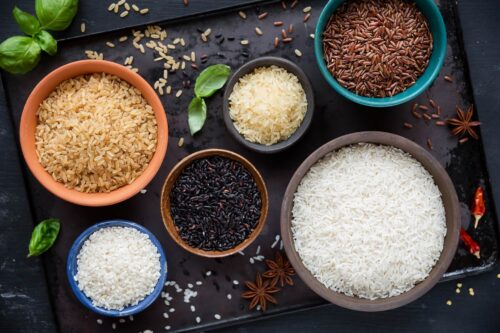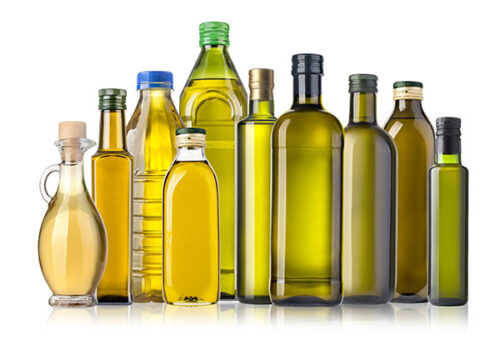Lessons to Be Learned from the “Fiber Not a Cancer Stopper” Story
With few exceptions, every news service throughout the Western world told people what they wanted to hear: “Well, scientists now find that there may be no need to “rough it” after all… For most of us, there seems to be no benefit for loading up on rough fruits, beans, and vegetables.” These welcome comments were based on a December 14, 2005 article by Yikyung Park in the Journal of the American Medical Association.This article and the accompanying media coverage provide some excellent examples of how the truth can be distorted to support people’s gluttony and avoid arousing their feelings of guilt.
Actual Findings from the Article:
In their eagerness to report “good news about bad habits,” the media jumped to an incorrect conclusion—apparently they do not have the time or interest to read the study1 carefully or an accompanying editorial,2 which said: “Park found evidence of an increased risk of colorectal cancer among individuals with very low intake of total dietary fiber…After adjustment for measurement error, the relative risk for intakes of less than 10 g per day vs 10 or more g per day increased from 1.22 to 2.16.” Meaning those with the very lowest fiber intake had almost twice the risk for colon cancer compared to those with the higher intake.
The accompanying editorial reinforced the benefits of dietary fiber by commenting on the findings of the most recent study on this subject (a study not contained in the Park analysis): “the European Prospective Investigation into Cancer and Nutrition (EPIC) investigators found a more than 40% reduction in risk of colorectal cancer for individuals in the highest quintile of dietary fiber intake vs the lowest…The findings by Park and the results of the EPIC analysis provide at least some indications that dietary fiber of some sort is related in some way to colon or rectal cancer risk.” Anyone who took the trouble to read these materials would not print headlines like: No Fiber Benefit Found for Colorectal Cancer. However, the results did not show the kind of protection you would hope for from a properly chosen diet and there are two important reasons why.
Small Differences Beget Small Differences
Worldwide, the risk of developing colon cancer varies (inversely) 10-fold with the intake of a population’s dietary fiber. In the 1960s the incidence of colorectal cancer among men varied from 3.5/100 000 people in Uganda and 5.3/100 000 in Mozambique to 51.5/100 000 in Scotland and 51.8/100 000 in Connecticut, USA.3 The difference in fiber intake can also vary 10-fold (from 100 grams to 10 grams) between underdeveloped and developed countries—as the diet goes from plant-food based to animal-food based and highly processed foods.
The analysis from Park’s study only looked at people who ate a rich Western-type diet. The difference in fiber intake from the lowest to the highest was only two-fold (14 to 28 grams for men and 13 to 24 grams for women). This small difference in diet is one big reason for the small difference in colon cancer risk.
A Little Fiber Fails to Negate a Lot of Fat and Meat
The other reason for the failure to show dramatic effects is other components of the diet have a stronger influence on cancer growth than fiber. More specifically, red meat intake is considered the most important cause of colon cancer. Meat has many qualities that damage the cells lining the colon—it is high in fat, cholesterol, contains environmental and heat-formed cancer-causing chemicals—and is totally deficient in dietary fiber and plant-derived, anticancer chemicals. The negative effects of red meat overshadow the benefits of fiber.
The Truth about Diet and Colon Cancer
One thing all researchers agree on is that what you put into the colon plays an important role in causing colon cancer—thus they all agree on diet, in one form or another, is at the root of the problem. What they disagree on is which component of the diet is most harmful. The major theories say the causes of colon cancer are:
|
Total fat |
|
Animal (saturated fat) |
|
Added vegetable oils |
|
Cholesterol |
|
Environmental Chemicals |
|
Carcinogens formed from heating meat |
|
Lack of dietary fiber |
|
Lack of plant derived anti-cancer substances |
|
Colon bacteria |
|
Bile acids |
them is the rich Western diet—a diet high in meat, dairy, eggs, processed foods, added fat, and low in plant-foods. This high-fat diet causes the liver to produce large amounts of bile acids that are turned into cancer-causing chemicals by colonic bacteria (bacteria that grow in the colons of meat-eaters).
Therefore, a well-informed consumer will not be discouraged by isolated reports that seem to speak negatively about a healthy plant-based diet. Instead, this person keeps focused on the fact that when they follow a diet of starches, vegetables, and fruits, they will not only prevent colon cancer, but also ward off heart disease, diabetes, breast cancer and most other common aliments—and cut their food and medical bills—and help save the planet—and be kind to animals. The reasons to make conscientious food choices seem to never end.
Reference:
1) Park Y, Hunter DJ, Spiegelman D, Bergkvist L, Berrino F, van den Brandt PA, Buring JE, Colditz GA,, et al. Dietary fiber intake and risk of colorectal cancer: a pooled analysis of prospective cohort studies. JAMA. 2005 Dec 14;294(22):2849-57.
2) Baron JA. Dietary fiber and colorectal cancer: an ongoing saga. JAMA. 2005 Dec 14;294(22):2904-6.
3) Lawlor DA, Ness AR. Commentary: the rough world of nutritional epidemiology: does dietary fibre prevent large bowel cancer? Int J Epidemiol. 2003 Apr;32(2):239-43.
Recommended Articles

How to Cook Beans

How to Cook Rice







